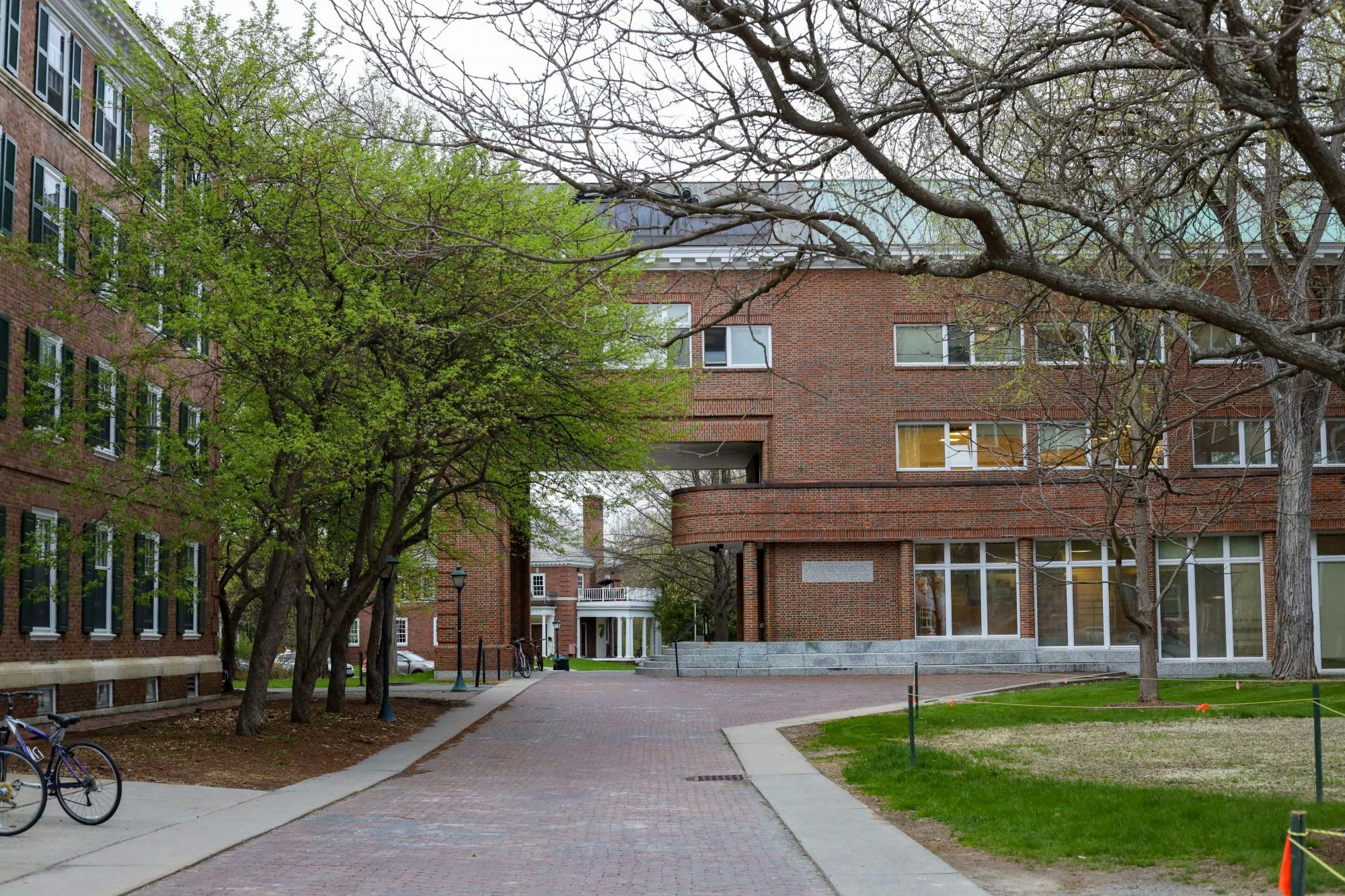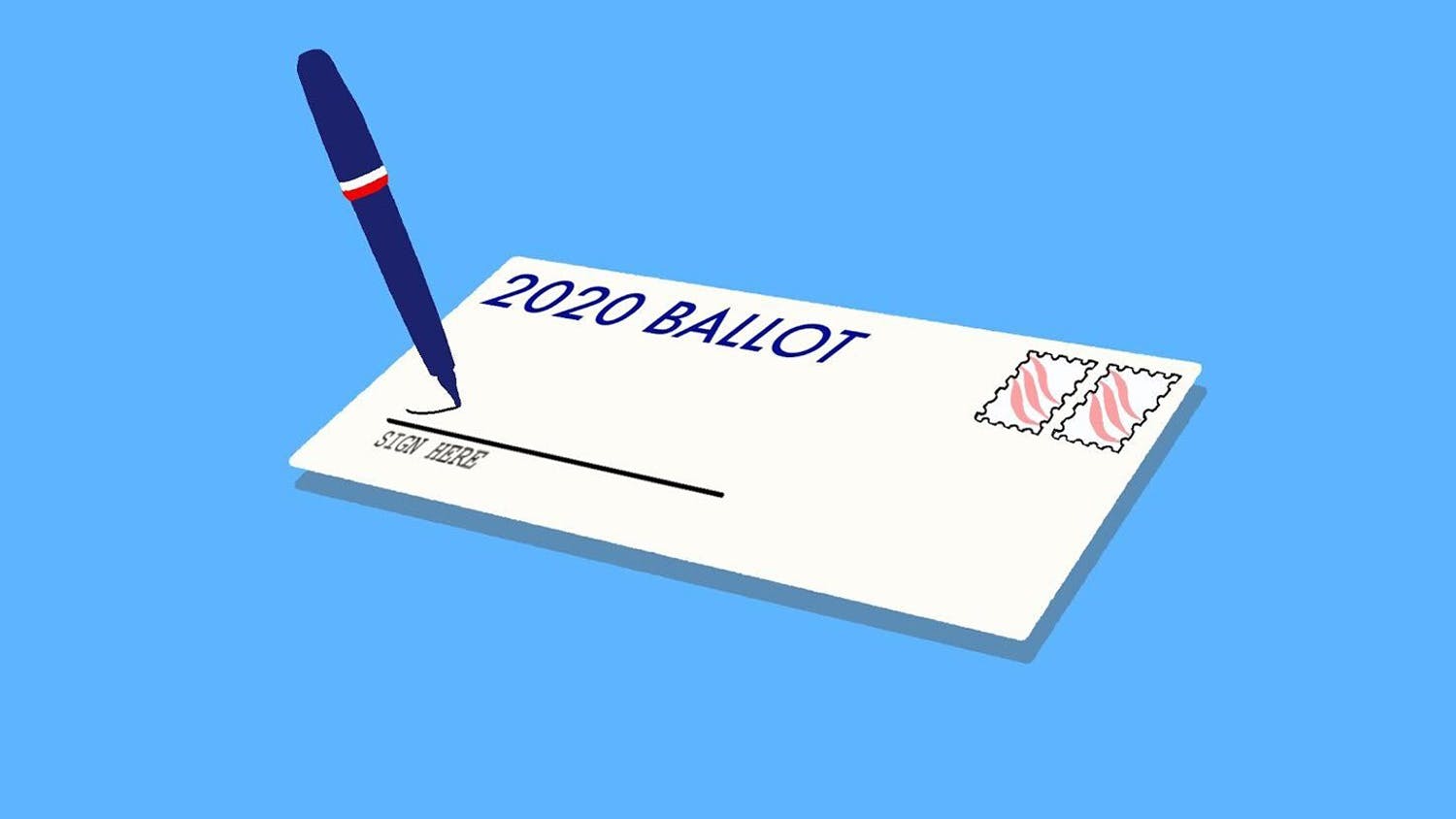Last Thursday, the Rockefeller Center for Public Policy hosted National Public Radio legal affairs correspondent Nina Totenberg in a discussion moderated by economics professor Charles Wheelan that analyzed issues facing the U.S. Supreme Court. The event, which covered topics from affirmative action to possible court reforms, attracted over five hundred viewers on Zoom and YouTube, according to Rockefeller Center for Public Policy director Jason Barabas.
Wheelan began the discussion by questioning Totenberg about her thoughts on former President Donald Trump’s three Supreme Court appointees — Justices Amy Coney Barrett, Neil Gorsuch and Brett Kavanaugh — all of whom Totenberg described as particularly conservative.
“With a couple of exceptions in individual cases, they have been as conservative as they said they would be and their promoters hoped they would be,” Totenberg said. “This is probably the most conservative court since the 1930s.”
Wheelan also queried Totenberg on proposed reforms to the Supreme Court that have circulated in the national legal discourse since the confirmation of Justice Barrett, including term limits and expanding the number of justices on the court. Totenberg said the Supreme Court expansion is not likely to happen in the “foreseeable future,” citing President Joe Biden’s attempts to project bipartisanship.
“[President Biden’s] not going to suck all the air out of the political system by doing the one thing that is almost certain to make everything else impossible for him to do,” Totenberg said.
Speaking to the increasing politicization of the Supreme Court, Totenberg said social issues such as gun rights, LGBTQ rights and abortion have driven this partisan trend. In particular, she said, voters increasingly choose political candidates based on their court nominees.
“The courts, in general, became a voting proposition for the Republican Party,” Totenberg said.
Totenberg also spoke to several recent landmark cases, including the Harvard case that alleged anti-Asian bias in the college application process. In 2019, federal judge Allison Burroughs ruled that Harvard’s race-conscious admissions policies do not illegally discriminate against Asian-American applicants. However, Totenberg said the Supreme Court’s 6-3 conservative majority, and in particular chief justice John Roberts, are likely to challenge Harvard’s current race-conscious admissions procedures. Conservative members of the court, she noted, are “firmly opposed” to affirmative action.
Totenberg also spoke to a recent Supreme Court case, “Tanden v. Newsom,” that struck down California’s COVID-19-related restrictions on at-home religious gatherings. In the case, the court ruled 5-4 that the state of California was treating certain groups, such as grocery stores, “favorably,” while unfairly forbidding churches to allow more than 25% occupancy.
“It was a pretty amazing and short opinion in a case that had not been heard, not been briefed and had enormous effects on the governor, the governor's rights and state legislators’ rights across the country,” Totenberg said.
Responding to an audience question, she said that “Roe v. Wade” — the controversial 1973 case that established the right to an abortion and has continued to be hotly contested in the federal courts since — might finally be overturned by the now majority-conservative court.
Wheelan also asked Totenberg about Justice Clarence Thomas — now the longest serving justice and the Supreme Court’s most conservative member — and his impact on upcoming decisions. According to Totenberg, the court’s current makeup gives Thomas disproportionate influence over court decisions.
“His slightly crazy dissents will now become the law of the land,” Totenberg said.
Totenberg added that the power dynamics between the White House, Congress and the Supreme Court have recently shifted, with the Court becoming “extremely deferential” to the executive branch. According to Totenberg, the Supreme Court has repeatedly blocked orders from lower courts on decisions made by the executive branch. There have been “eight times more” shadow docket actions — referring to Supreme Court decisions made outside of the regular order without oral argument — of the court blocking lower court decisions in the Trump administration “than in any of the previous administrations,” Totenberg said.
In a follow-up interview, Wheelan said the event was particularly timely, noting the number of recent unprecedented events surrounding the Supreme Court, such as the nomination of Amy Coney Barrett and the new 6-3 conservative majority. Wheelan added that he believes the Supreme Court does not get the “attention that is due” because of a focus on the Presidency and Congress among the media and the public.
“This third coequal branch has a profound impact on governance — it just deserves that attention,” Wheelan said. “Separately, we have a new 6-3 conservative majority that's different than what we've had in the past, so it behooves us to pay attention to what's happening.”
Wheelan said he has known of Totenberg in the realm of journalism for quite some time, noting her voice was “very familiar” as a prominent figure on NPR.
He added that the Zoom format offered had some benefits, such as the ability to “upvote” audience questions.
“At least half the questions were audience originated and upvoted by other people,” Wheelan said.
Matthew Gluck ’23 said he attended the event to hear from Totenberg, whom he called a legal reporting “giant.” Gluck added that he appreciated Totenberg’s descriptions of shadow docket rulings and the “Tanden v. Newsom” case.
“I found her comments about how the ruling indicates a significant change in the Supreme Court’s free exercise jurisprudence to be very interesting — I definitely see where she is coming from,” Gluck said.




